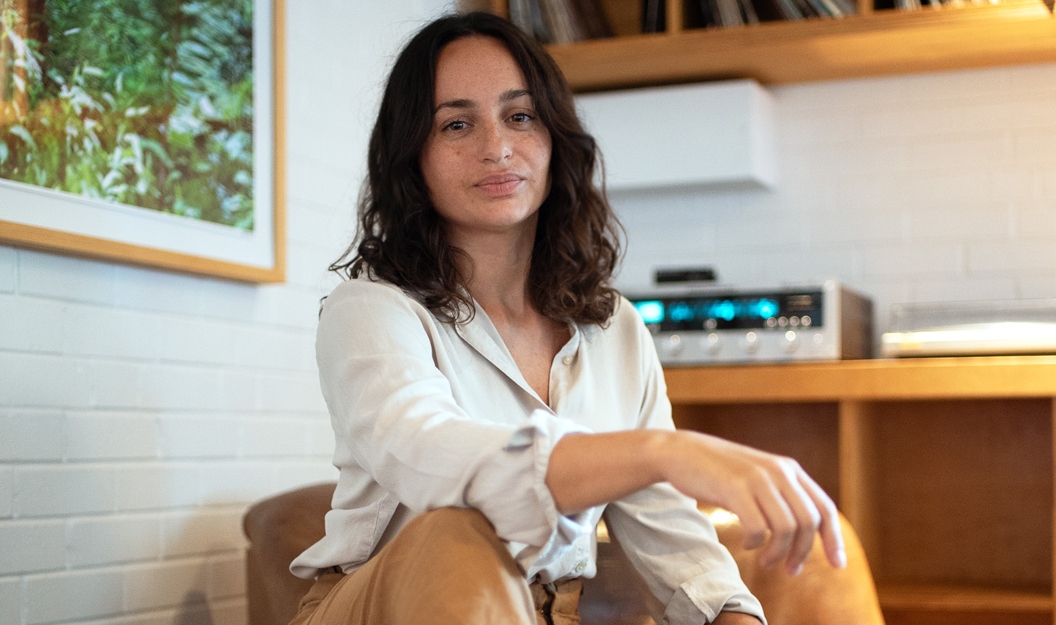For Joaihú Chocolate, sustainability comes first, but regeneration is what’s coming next.

By Allie Justis, Photos courtesy of Joaihú Chocolate
Joaihú is a word that may not be familiar to most here in Austin, but for Kate Robberson, CEO, co-founder and creative director at Joaihú Chocolate, this word and the philosophy that comes with it has worked its way into every aspect of her life and business. Deriving its meaning from the Indigenous Brazilian language Tupi, joaihú means “to love and to be loved,” or more broadly for Robberson, to respect the Earth and give back to it.
Getting her start back in 2009, Robberson first fell in love with Bahia, Brazil, when she was traveling on tour with longtime friend and fellow musician Emilie Basez. While there, Robberson fell in love with the strong sense of community and holistic lifestyle; she wanted to find a way to give back to the area.
Fast forward to 2021. Robberson has built a strong connection with Charles “Charlie” Stewart, an American biologist based in Bahia. Together they formed a partnership to bring specially crafted Joaihú Chocolate from Brazil to Austin. Currently, Joaihú sells 75%, 85% and 100% craft Brazilian cocoa chocolate bars in their online store, as well as at Tiny Grocer, Dia’s Market, Central Markets and Try Hard Coffee. Robberson emphasizes the importance of keeping their cocoa nibs percentage at 75% and higher, not only so customers can taste the bold regional flavors, but also because it keeps the health benefits from the cocoa butter, like the extra dopamine, serotonin and healthy fats used for better brain functioning, intact .
Both Stewart and Robberson knew from the start that the Joaihú philosophy needed to be more than a lofty goal. They set out to have every aspect of their company not just be sustainable, but regenerative for the ecosystem they were relying on. The pair got to work making a business that is proudly zero plastic, single origin and directly sourced. By committing to using a cellulose, biodegradable packing, Joaihú has been able to cut out the middleman and foster a healthy environment.

“We understand that we are part of a larger system,” says Robberson. “So we have to take care of the whole ecosystem rather than just our part of it. I personally just don’t see any other way than going past sustainability and investing in our future with regeneration. Sustainability means to maintain, but now we’re in the mode of thinking, ‘How can we make it better? How can we improve our ecosystems? How can we develop practices that aren’t harming the earth? How do we regenerate, regrow and replenish the earth?’”
Being based in the Atlantic Rainforest region of Brazil, where only 8% of that rainforest is still intact, has really driven home the importance of practicing mindful agriculture at Joaihú, rather than falling back on slash-and-burn tactics that would be easier and cheaper. Joaihú has partnered with Brazilian organizations like Parque Conduru and INEMA to release rehabilitated animals back into healthy ecosystems. That’s only possible thanks to these mindful agricultural practices.
“As a business, we have the opportunity to do both environmental good and social good,” says Robberson. “I feel business owners assume that you have to be a nonprofit to have these values. But with Joaihú we wanted to reinvest back into these communities by being a direct company. You’re buying the chocolate ‘bean to bar’; basically like it would be at a farmers market.”
These little chocolate bars represent just a fraction of a larger process built upon ideals of respect and dedication to keeping a holistic lifestyle that gives back to the planet.

“I want [customers]to take away the same things that I’ve been able to,” says Robberson. “I want people to cultivate a feeling of a deep connection to the rainforest. Be able to appreciate where things come from. To understand that something’s crafted with loving hands; be able to connect to the other side of the world through our food is so amazing to me. I think that’s a huge thing. To understand what the name Joaihú means and to know that there are like-minded people who are here rooted in those values of reciprocity and a respect. Not only is it chocolate. It’s understanding that what we consume also has long-lasting effects on our body. So when we’re putting clean, intentional ingredients in, that holistic living radiates out from there.”


1 Comment
Поиск в гугле